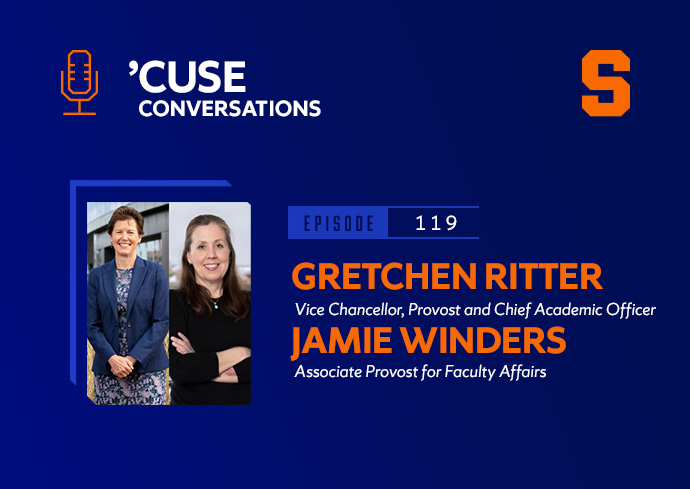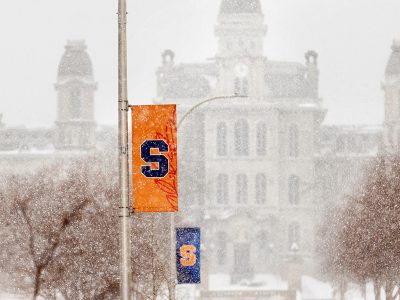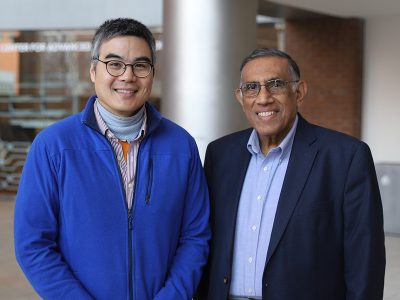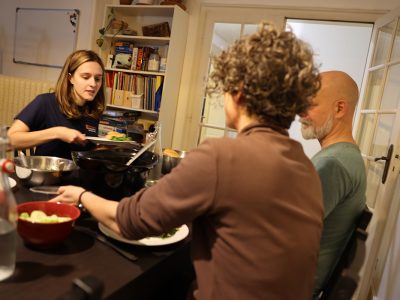Exploring Syracuse University’s Future Through the Academic Strategic Plan: ‘A Roadmap to the Future We Collectively Create’ on the ‘’Cuse Conversations’ Podcast

The Syracuse University campus community is embarking on an important five-year journey of self-discovery and self-improvement, revamping its Academic Strategic Plan (ASP) to position itself as a leading global institution that attracts the best students and accomplished faculty who are respected thought leaders.
The goals are ambitious: creating an unsurpassed student experience that is guided and informed by extraordinary scholarship, research and discovery. The stakes are high: determining how Syracuse University can improve its academic excellence at every level while fostering a sense of welcome and belonging and ensuring the distinctive excellence, accessibility and collective success for all members of the campus community.
The impact of this revised ASP will be far-reaching. Besides setting the course for where the University is headed, the ASP will also be responsive to the cultural, economic, societal and governmental changes that impact the University and our world.
The ASP will set the course for the future of the University by addressing three key questions:
- Where is the institution currently, what is Syracuse University really good at and in what areas could we improve to get even more proficient?
- Where does the University want to go, and what values does it want to embody in the future?
- How does the institution achieve that future state of academia, allowing students, faculty and staff to flourish and thrive on campus?
Check out episode 119 of the “’Cuse Conversations” podcast featuring Gretchen Ritter, vice chancellor, provost and chief academic officer, and Jamie Winders, associate provost for faculty affairs. A transcript [PDF] is also available.
The ASP is guided by three core pillars, with working groups dedicated to each:
- Research and Creative Excellence
- Educational Excellence and Student Success
- Public Impact
Additionally, four working groups formed to shape the process of implementing our shared and cross-cutting values:
- Diversity, Equity, Inclusion and Accessibility (DEIA)
- Global Engagement
- Enrollment Strategy
- Resource Sustainability and Budgeting
Recognizing the need to have all voices heard, the University’s students, faculty, staff and alumni are invited to provide their feedback on the ASP. Between Wednesday, Oct. 12, and Nov. 1, there are also a series of online engagement forums, valuable opportunities for members of the campus community to get involved and give their feedback on the plan.
Wanting to both educate the campus community and drum up excitement for the far-reaching impact of the ASP, Gretchen Ritter, vice chancellor, provost and chief academic officer, and Jamie Winders associate provost for faculty affairs, stopped by the “’Cuse Conversations” podcast to discuss the thought process behind the Academic Strategic Plan, how an ASP can set Syracuse University up for sustained success, why members of the campus community should get involved in deciding the future of the University and how this ASP differs from other higher education institutions.
Note: This conversation was edited for brevity and clarity.


